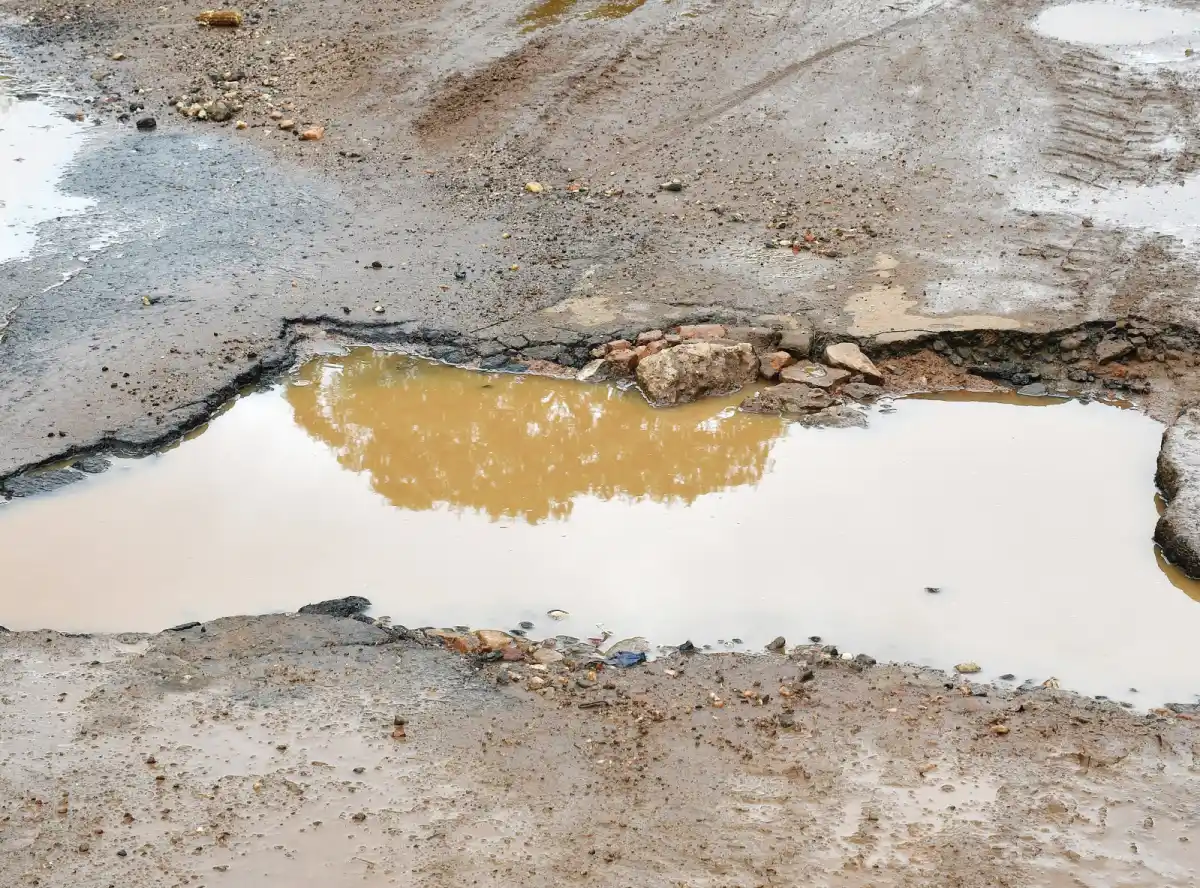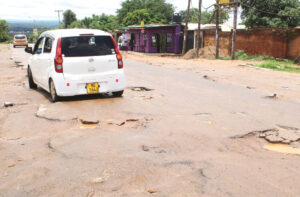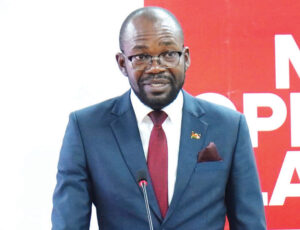
Driving in Lilongwe, Blantyre, Mzuzu, Zomba and all places across the country, there is one familiar feature on the country’s roads: potholes. And they are worsening while there also seems to be no immediate solution. So, how did we get here?

By Deogratias Mmana:
Malawi has a familiar but worsening crisis that is giving motorists a torrid time on its roads: potholes.
But regardless the seriousness of the problem, maintenance works are largely invisible.
And it looks like there is not going to be any solution anytime soon.
At the heart of the crisis are two combined factors: the absence of fuel levy, a problem resulting from government’s fear of political repercussions of a fuel price increase that would help the country generate the levy it needs to maintain roads.
Malawi Energy Regulatory Authority (Mera) is failing to give the Roads Fund Administration (RFA) the money collected through fuel levy.
Today, Mera owes RFA up to K161 billion in levies meant for road construction and rehabilitation.
In August last year, Mera and the Ministry of Transport reported in separate cases that the energy body was struggling to collect the road maintenance levy in fuel pump price build up.
It said this was because fuel importers were using the money as compensation due to the low price at which Malawi is selling fuel, instead of remitting it to Mera.
The fuel related laws oblige fuel importers to remit the levy to Mera.
In turn, Mera remits what it collects to RFA for road construction and maintenance through the Roads Authority (RA).
Now both RFA and RA are stuck because Mera itself is also handicaped because fuel importers have no money to give Mera.
We asked RA board chairperson Matilda Matabwa why her organisation is doing nothing about the roads and watching the situation deteriorate.
She said in the case of roads within cities, their maintenance falls under the city assemblies.
“However, Mera has not been remitting fuel levy to RFA for road maintenance. You may also wish to confirm with RFA the exact figures being owed,” she said.
RFA spokesperson Masauko Ngwaluko said yesterday that Mera owes the fund up to K161 billion in fuel levy.
RFA does collect fees from its two tollgates at Chingeni in Ntcheu and Kalinyeke in Dedza.
But that money cannot be used to rehabilitate other roads apart from the one where the tollgates stand, according to Ngwaluko.
“The main purpose of road tolling is to maintain and rehabilitate the tolled road. We are currently already using the toll fees to maintain the tolled road with maintenance works along M1 from Kamwamba to Zalewa Turn Off.
“However, it should be noted that the toll fees collected are far below the required amount to rehabilitate or maintain the tolled road,” Ngwaluko said.
Mera spokesperson Fitina Khonje told the media last year that Mera was failing to remit the levies because it had not been receiving the said levies from importers.
Asked yesterday why Mera is not taking heed of calls to increase fuel prices, which would in effect enable the fuel importers to start remitting levies, Khonje responded:
“The Mera board’s mandate includes setting energy prices and charges to ensure that prices are both cost reflective and affordable and to ensure continuity of supply. When a decision is made, it will be published as it has always been done.”

At the heart of the conundrum is the government’s fear of public reaction to a fuel price increase, if the response from Minister of Information Moses Kunkuyu is anything to go by.
We also asked Kunkuyu Friday why the government is not moving on calls to have fuel price increased.
He said: “The talk about raising the price of fuel has been there for sometime now. Government has a responsibility to ensure that every price adjustment is made with the best interest of all Malawians at heart.”
Kunkuyu said after all, not all roads are constructed or maintained using fuel and energy levies.
“So, we cannot sweepingly say that by not increasing fuel prices, then the government is endangering people’s lives [through poor roads].
“Government will continue building roads across the country in line with its development aspirations,” Kunkuyu said.
However, Consumers Association of Malawi Executive Director John Kapito said it is “unfortunate for the authorities to hold fuel prices.”
“There is so much damage happening like the current status of our roads and the never ending fuel scarcities that have forced many consumers to spend nights at filling stations.
“I strongly believe that most consumers would support a marginal fuel price increase rather than go through what they are facing at filling stations and using bad roads,” he said.
In a measure of the financial struggles, last year, RFA wrote RA advising it that it had no funds for maintenance of the road network.
It told RA to postpone or cancel some road works.
In the memo, dated November 29, 2024, RFA Chief Executive Officer Stewart Malata said the organisation’s liquidity came because of not receiving fuel levies.
At that time, the figure was at K151.2 billion.
Reads the memo in part: “The RFA takes cognizance that the road network is in dire need for maintenance and come the rainy season, there will be more damage to the network.”
Malawi Energy Regulatory Authority (Mera) is failing to give the Roads Fund Administration (RFA) the money collected through fuel levy.
Today, Mera owes RFA up to K161 billion in levies meant for road construction and rehabilitation.
In August last year, Mera and the Ministry of Transport reported in separate cases that the energy body was struggling to collect the road maintenance levy in fuel pump price build up.
It said this was because fuel importers were using the money as compensation due to the low price at which Malawi is selling fuel, instead of remitting it to Mera.
The fuel related laws oblige fuel importers to remit the levy to Mera.
In turn, Mera remits what it collects to RFA for road construction and maintenance through the Roads Authority (RA).
Now both RFA and RA are stuck because Mera itself is also handicaped because fuel importers have no money to give Mera.
We asked RA board chairperson Matilda Matabwa why her organisation is doing nothing about the roads and watching the situation deteriorate.
She said in the case of roads within cities, their maintenance falls under the city assemblies.
“However, Mera has not been remitting fuel levy to RFA for road maintenance. You may also wish to confirm with RFA the exact figures being owed,” she said.
RFA spokesperson Masauko Ngwaluko said Friday that Mera owes the fund up to K161 billion in fuel levy.
RFA does collect fees from its two tollgates at Chingeni in Ntcheu and Kalinyeke in Dedza.






0 Comments